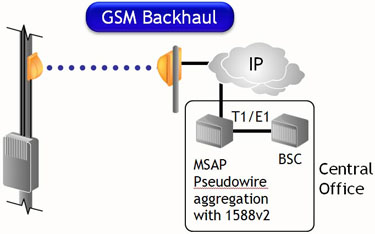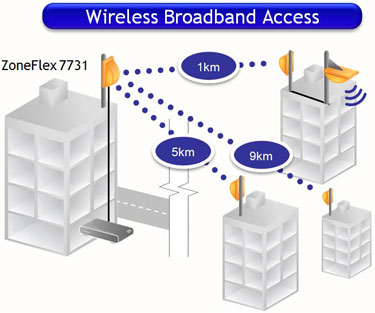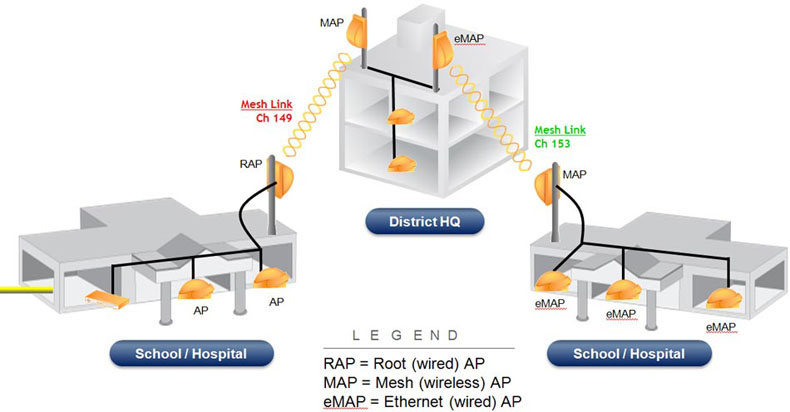
RUCKUS Solutions - Backhaul
Better Backhaul that's Faster, Reliable and Simpler to Deploy
As network operators continue to increase the coverage and capacity of their wireless deployments, they also increase the stress on their cell site backhaul connectivity. There are several situations where conventional point-to-point microwave, bonded copper, and fiber-based backhaul solutions are impractical or uneconomic - and where Wi-Fi can play an important role. We outline a couple of key examples here:
LTE Small-Cell Backhaul. Mobile operators are planning their LTE networks as a combination of macro cells and an 'underlay' network of smaller micro and picocells. In order to achieve the capacity density required by rapidly rising mobile Internet bandwidth demand, these small cells will need to be much larger in number in a given area than is the case in current cellular networks. As such they will represent a brand new and very significant backhaul challenge - because the mounting locations of these small cell nodes (such as utility poles or other street-level assets) will very rarely be a natural fit for fiber or microwave solutions. The concept of LTE self-backhaul or meshing is one possible solution, but as with early mesh Wi-Fi networks that attempted to provide access and meshing all within the same spectrum band, this approach rapidly consumes scarce (and expensive) LTE access-capable spectrum with backhaul traffic. The option of using a 5 GHz 802.11n point to point solution is a very attractive alternative here - easily delivering the more than 100 Mbps of backhaul capacity an LTE cell will need.
GSM Cellular Backhaul. As operators in developing markets continue to push out the coverage of GSM, their efforts sometimes extend beyond the reach of reliable sources of power. This can be addressed with solar-powered base station sites. These installations need to be engineered for lower power consumption than conventional sites, to minimize the cost of solar panels and battery backup. This can include taking advantage of the fact that a well-designed 802.11n point to point solution such as RUCKUS's ZoneFlex 7731 is much more power efficient, per bit delivered, than the typically watt-hungry microwave backhaul links that would otherwise be the default for remote GSM sites.
Wi-Fi for Wireless Broadband Access and 3G Offload. Delivering point-to-point and point-to-multipoint backhaul capacity to mesh Wi-Fi networks with the ZoneFlex 7731 is also an essential component of RUCKUS's complete wireless broadband access (WBA) and 3G offload solutions addressing concerns such as the need for:
- Lightweight low cost and long range Wi-Fi backhaul that provides up to 50 Mbps at up to 10 km/6 miles
- Simplified deployment and management
- Affordable and reliable LTE and GSM backhaul
- Low density wireless broadband access
- Increased capacity and optimized performance through smart channel selection
 |
 |
 |
|
| Featured Products | |
|---|---|
| ZoneFlex 7731 Backhaul Solution Connect your access mesh to the core network with robust, easy-to-use, and low-cost point-to-point 802.11n backhaul |
|

